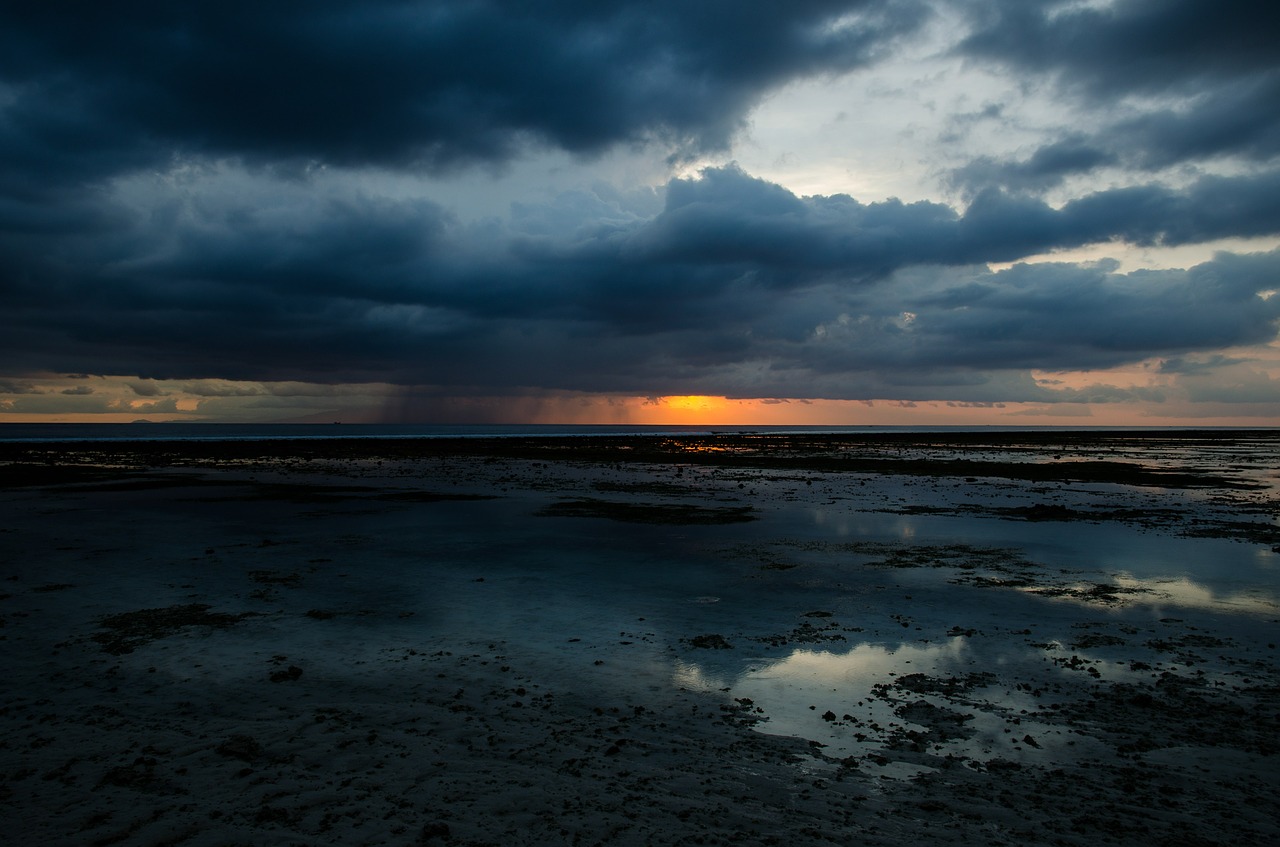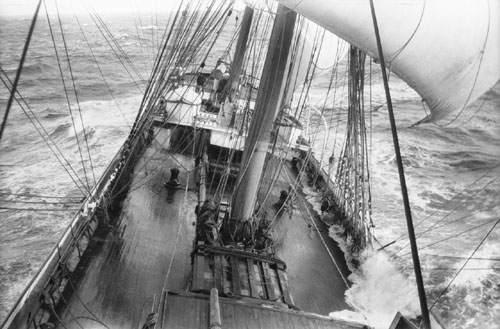The Storm Before the Calm

The setting evening sun created a soft, orange glow along the silhouette of a cloud formation on the horizon. In the far distance, stormy darkened skies began to appear in the port anchorage area of the lengthy, shallow shoreline. A well-secured fleet of weather-beaten fishing vessels rested on their mooring lines. But one anchorage spot was still empty, because the vessel had not yet returned. The entire fishing village was becoming extremely concerned about the unusual stormy circumstances on the Sea of Galilee, coming from the area of the Mediterranean where such bad weather usually blew in.
Powerful winds were beating hard against the helpless vessel. In the pilothouse, the captain was at the helm carefully watching the turbulent sky in the darkness that had begun to surround them.
The small crew of that one vessel was about to face the raging presence of death shortly, as it prepared to test their faith concerning the dark, stormy skies and tempestuous waves. Powerful winds were beating hard against the helpless vessel. In the pilothouse, the captain was at the helm carefully watching the turbulent sky in the darkness that had begun to surround them. It was immediately approaching “Little Faith,” his small vessel that was too far out in the rough sea. Powerful waves began to toss it about because the wind was contrary. As she began to take in water heavily, the small, struggling fishing vessel was living up to her name.
The situation reminded old captain James Benson of a time when he was young. Another old sea captain named Peterson would hang around the other fishermen sharing tales of their sea adventures as they mended their nets. It wasn’t long before Captain Benson began sharing a different type of tale with his two crewmen in “Little Faith’s” pilothouse. He cheerfully began, “It sure looks like “Little Faith” will have to endure her own test with us three, which will really try our faith throughout this rough, stormy night.” Then he turned “Little Faith” toward the compass heading for the anchorage of the vessel.

The men could feel the strong winds keeping “Little Faith” from going home as powerful waves hitting the bow tossed her about. The captain told Jonathan to take over the helm while he took his other crewman, Matthew, below to the engine room to see how much more the struggling old worn-out engine could hold up against the wild elements of nature during that rough, stormy night. The bilge pump was straining very hard, trying to keep “Little Faith” afloat. The struggling engine pitted its strength against the storm’s enormous waves beating against the old weather-beaten wooden hull. But the captain realized that the boat was taking in more water than the bilge area could possibly handle. He was struggling as hard as he could to find some way to keep the old vessel afloat. “Matthew,” he shouted, “keep me informed if it gets any worse. I’m going topside to the pilothouse.” Matthew responded with a worried look. Then the captain gripped the handrail of the metal service ladder and climbed up to the pilothouse.
He was afraid, because he could tell that “Little Faith’s” hull was showing signs of yielding to the strength of the enormous waves repeatedly beating against it.
Johnathan was very concerned about their directional heading on the compass toward the shallow shoreline, due to the boisterous wind. He was afraid, because he could tell that “Little Faith’s” hull was showing signs of yielding to the strength of the enormous waves repeatedly beating against it. Captain Benson stared out the pilothouse windows, focusing on the shoreline, looking for a lighted marker to guide them to their port. Turning to Jonathan, he said “My son, fear and doubt, our enemies, are making an assault on us.”

The captain continued, “About two thousand years ago, a stormy night similar to this one occurred in this same area where we are now. That crew had to face the same strength from the enormous waves of that raging storm beating against their fishing vessel back in the time of Yeshua (Jesus). He had sent His disciples to the other side of the sea, and then sent the multitudes who had come to hear Him home. Then He went up into the mountain to pray. As evening approached, the disciples were alone in the boat, and He was still alone on the mountain. The vessel His disciples were on was now in the middle of the sea, being tossed about by the waves, because the wind was contrary. Fear and doubt rose up in Yeshua’s disciples, since their sail was useless in the storm. They tried their best to row against the raging waves. Around three in the morning—the fourth watch of the night—Yeshua went out unto the disciples, walking on the sea. When they saw their Master walking on the water, they became very distressed and cried, “It’s a spirit! and they cried out in fear.” But Yeshua said unto them, “Be of good cheer; it is I; be not afraid” (Matthew 24:25-26).
Even though we’re in the midst of a raging storm, we should not allow ourselves to be terrified of sinking.
“You see, Jonathan, they were facing the same kind of raging natural elements of the sea “Little Faith” is facing now. But the Lord was present there with them, and His presence is with us here tonight. Even though we’re in the midst of a raging storm, we should not allow ourselves to be terrified of sinking.” The captain and Jonathan then prayed that the Lord would come and save them. Only a short time later, Jonathan spotted a lighted shoreline marker leading them to their port. At the same moment, the storm’s raging winds quickly ceased.

When the disciples cried out, “Lord save us: we perish!” He replied, “Why are ye so fearful, O you of little faith, for what reason did you doubt?” Then He arose, and rebuked the winds and the sea; and there was a great calm. But the men marvelled, saying, What manner of man is this, that even the winds and the sea obey him! (Matthew 8:26-27). So why are we so fearful when raging storms come into our life? Why do we doubt when we know that Jesus is near? We only need to remember that “He maketh the storm a calm, so that the waves thereof are still” (Psalm 107:29).
[Additional image credits: Featured image (when applicable) Johannes Plenio on Pexels]; Opening photo by Rudy and Peter Skitterians on PIxabay




